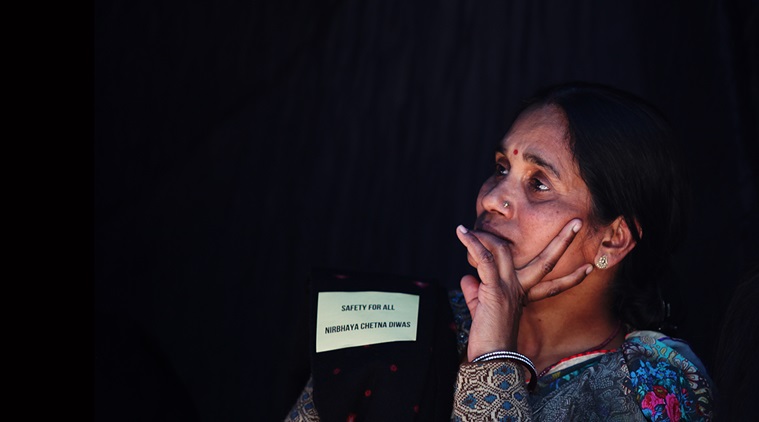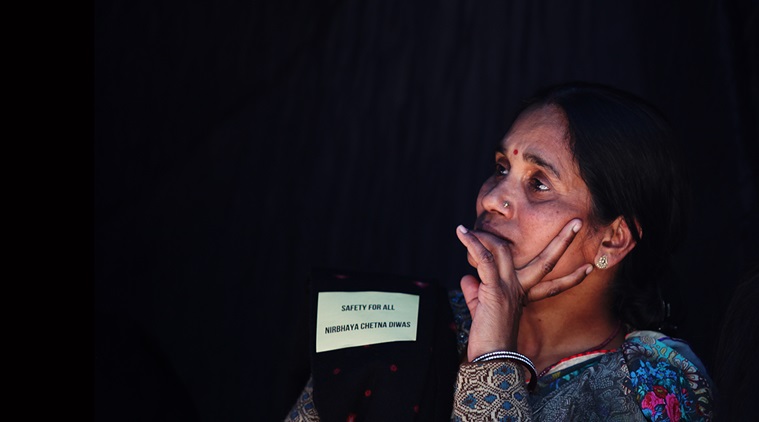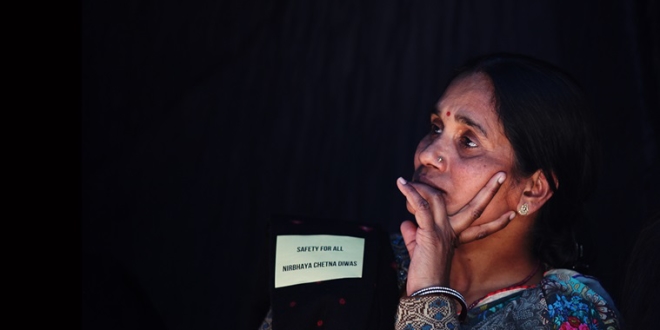
 Mother of Nirbhaya at a thrid year memorial for the girl who was gangraped, tortured and murdered on 16 December, 2012 in a moving bus in New Delhi. (Express Photo by Tashi Tobgyal )
Mother of Nirbhaya at a thrid year memorial for the girl who was gangraped, tortured and murdered on 16 December, 2012 in a moving bus in New Delhi. (Express Photo by Tashi Tobgyal )
Many knew her name already but did not say it aloud on television or put it into print. To be honest, I did not know it until the day her mother, Asha Devi, said publicly last week, “My daughter was Jyoti Singh and I am not ashamed to name her.”
Jyoti Singh was gangraped exactly three years ago in a bus in Delhi. She died shortly after, from the terrible violence that accompanied the rape. As the facts of the gangrape filtered into the public sphere, the fierceness of her resistance to her rapists was highlighted in as much detail as the fierceness of her attackers’ brutality.
We learned what they did to her, in vomit-making detail. Yet we also learned that she fought, she bit, she kicked, she screamed. A nation in the throes of revulsion came to celebrate her bravery. It made India feel better that she had resisted to the end. If her rape was India’s shame, her courage came as a handy palliative.
In no time at all, she came to be known as “Nirbhaya”— the Fearless One. There were some legal restrictions on naming her, that’s true; but the
laudatory pseudonym suited the public discourse. At a stroke, it elevated the murdered woman above the muck of Indian society, raising her onto a pedestal. There, sullied yet pristine, she could be idolised. It’s easier to idolise than it is to introspect.
In ceasing to be ‘Jyoti Singh’, and in becoming ‘Nirbhaya’, Jyoti lost her personhood. She was effectively dehumanised. Not in the way that she had been dehumanised by her attackers — who took from her everything they could, including her life — but it was a public, collective stripping from her of her personality, and identity.
As Nirbhaya, Jyoti became a symbol of civic convenience that fit perfectly with the patriarchy of Indian society: a society which confers nobility on its women — demands it of them, in fact — while resisting their access to true autonomy. The male-valued deification of Jyoti in death — the adding of Goddess Nirbhaya to the national pantheon— was the flipside of the male-valued contempt for Jyoti shown by her rapists, who believed that any woman out at 9 at night must be inherently loose or slutty.
Soon enough, the notion of Nirbhaya degenerated into gloppy sentimentality, a sort of saccharine national breast-beating that was, in truth, a form of self-congratulation. Nirbhayas abounded — every girl or woman who was raped became one. They were saluted as Bravehearts, their identities — their names — swallowed up by the greedy gullet of sentiment.
This masking of names in the guise of a tribute only reinforced the Indian belief that a raped woman is a woman soiled, the bearer of a stain that never quite goes away: to name her is to shame her.
One of Jyoti Singh’s rapist-killers is about to walk free. He is a juvenile and the law does not permit his further detention. There is no point railing against this injustice; and it would set a poor precedent to seek to twist the law to keep him in custody. A better approach would be to change the law, so that
juvenile rapists serve longer terms in future. Call it ‘Jyoti’s Law’, the way the Americans name their laws after victims.
Jyoti’s Law. Let us pay tribute to her by shouting out her name in public. No more mawkish pseudonyms; no more of this sappy, idolised anonymity. Let us all free Jyoti Singh from the suffocation of ill-conceived sainthood.
![]()
Source: New feed






